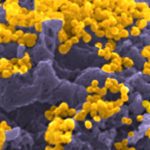Link to Pubmed [PMID] – 17101496
Autoimmunity 2006 Nov;39(7):531-9
Pemphigus are rare but informative models of organ-specific autoimmune diseases, resulting from the interplay of environmental, genetic and stochastic factors. There are many arguments to consider that pemphigus have a genetic basis involving, as many other autoimmune diseases, several different genes with additive or synergistic effects. So far, the unique strategy used to identify the contributive loci has been direct analysis of candidate genes through conventional case-control association studies. The major histocompatibility complex in particular the class II locus was demonstrated to be associated with pemphigus with a high rate of replicability. The progresses in the understanding of pemphigus physiopathology and the development of new molecular tools offer new perspectives to unveiled the genetic basis of this group of autoimmune blistering diseases, as shown by recent studies of candidate genes expressed at different levels of the autoimmune process.

